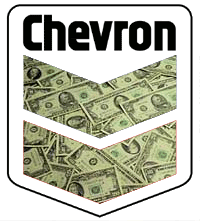The rest of the country is happily watching gasoline prices sink as the latest bubble in oil crude prices springs a leak. Except California. Nationally, gasoline prices are down more than 15 cents a gallon over the last month, according to the daily AAA fuel gauge. California drivers are still cringing, with prices up more than15 cents a gallon in just the last two weeks.
What gives? As usual, it’s the refineries. There are only 12 refineries supplying gasoline in the state, according to the California Energy Commission. Several of them are fully or partly shut down, for repairs or “scheduled maintenance” or just because the owner thinks refining gasoline is temporarily not profitable enough. This restriction in the state’s gasoline supply can go on for as long as refineries wish-the state has no authority to demand that scheduled maintenance be more rationally planned or efficiently conducted, or to investigate whether a plant owner is playing games with our pocketbooks.
The bottom line is that California, because it’s not on any major gasoline pipeline network, can’t bring in supplies to counter refinery shutdowns, is stuck with whatever shortage-induced gasoline price the refineries want to impose. If they can make up on profit what they lose on production, it’s just dandy for their bottom line. The extra profit that refineries generally make in California even has a name in the industry: “West Coast Premium.”
According to a 2009 investor report by the Texas-based refinery Tesoro, West Coast refineries have an average margin that is $8.50 per barrel higher than those operating on the Gulf Coast.
Given the power that refiners’ restrictions of gasoline supply have on gasoline prices, the state should have more regulatory power over refinery operations, modeled on regulation of power companies. The refiners would be guaranteed a modest but steady profit, and would in return have to guarantee a steady, reliable gasoline and diesel fuel supply. The new oversight would be more than paid for with a modest extraction tax on oil drilled in California-something every other oil-producing state enacted long ago.
Another conclusion from current gasoline prices in the state is that drilling more in Californiaâoff the coast, in deep shale, or by using dangerous superhot steam to wring more from old oilfields-won’t lower pump prices by a penny. Oil prices are going down now because speculators finally had to admit that there is no shortage of oil in the U.S. or in the world, but California drivers haven’t seen a penny of benefit.
California, even if it could produce every drop of oil that the state uses, would still be largely at the mercy of refiners.
____________________________________________________________________________________
Posted by Judy Dugan, research director for Consumer Watchdog, a nonpartisan, nonprofit organization dedicated to providing an effective voice for taxpayers and consumers in an era when special interests dominate public discourse, government and politics. Visit us on Facebook and Twitter.


